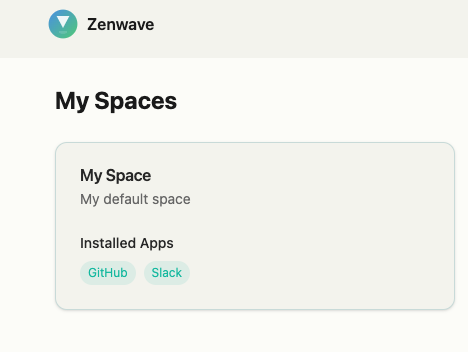Table of Contents
Overview
In the rapidly evolving landscape of Artificial Intelligence, managing and integrating various AI tools can quickly become a complex and overwhelming task. Enter Zenwave, a platform designed to centralize your AI integrations. By acting as a unified Multi-Client Protocol (MCP) server, Zenwave offers a streamlined approach to connecting and managing diverse AI clients through a single, efficient platform. Let’s dive deeper into what Zenwave offers and how it can simplify your AI workflows.
Key Features
Zenwave boasts a powerful set of features designed to simplify AI integration and management:
- MCP Server Architecture: At its core, Zenwave utilizes a Multi-Client Protocol (MCP) server architecture, providing a central hub for all your AI connections.
- Supports Multiple AI Clients: Zenwave is designed to handle a wide array of AI clients, allowing you to integrate various tools and models seamlessly.
- Unified API Management: Simplify your development process with Zenwave’s unified API management, providing a consistent interface for interacting with different AI services.
- Real-Time Communication: Facilitate seamless interaction between AI clients with real-time communication capabilities, ensuring timely and efficient data exchange.
- Secure and Scalable Infrastructure: Zenwave provides a secure and scalable infrastructure to support your growing AI needs, ensuring reliability and performance.
How It Works
Zenwave operates as a central hub for your AI ecosystem. Different AI clients connect to Zenwave through standardized protocols. The platform then manages requests and responses through its MCP server, effectively streamlining integrations. This eliminates the need for managing multiple endpoints and protocols, simplifying your AI infrastructure and reducing complexity. Users interact with Zenwave through its unified API, abstracting away the complexities of individual AI client integrations.
Use Cases
Zenwave’s centralized approach makes it suitable for various AI-driven applications:
- AI Toolchain Unification: Integrate diverse AI tools into a cohesive toolchain, enabling seamless data flow and collaboration.
- Streamlined AI Workflows: Simplify complex AI workflows by centralizing communication and management through a single platform.
- Multi-Agent System Integration: Facilitate the integration of multiple AI agents, enabling coordinated action and collaborative problem-solving.
- R&D Environments Requiring AI Orchestration: Streamline research and development processes by providing a centralized platform for experimenting with and orchestrating various AI models.
- Centralized AI Infrastructure Management: Simplify the management of your AI infrastructure by providing a single point of control for all your AI clients.
Pros & Cons
Like any platform, Zenwave has its strengths and weaknesses. Here’s a breakdown:
Advantages
- Centralized Management of AI Clients: Simplifies the management of multiple AI clients through a unified platform.
- Flexible Protocol Handling: Supports a variety of protocols, allowing for seamless integration with diverse AI tools.
- Simplifies Integration: Reduces the complexity of integrating different AI services, saving time and resources.
Disadvantages
- Limited Public Documentation: The platform’s documentation may be limited, potentially requiring more hands-on exploration.
- Early-Stage Platform: As a relatively new platform, Zenwave may still be under development and subject to changes.
- Unknown Scalability Under Heavy Load: The platform’s scalability under heavy load is currently unknown, which could be a concern for high-demand applications.
How Does It Compare?
When considering AI orchestration and integration, it’s helpful to compare Zenwave to other tools in the market.
- LangChain: While LangChain focuses primarily on Large Language Model (LLM) orchestration, Zenwave offers centralized connectivity via its MCP server, supporting a broader range of AI clients.
- AutoGPT: AutoGPT emphasizes task autonomy and agentic workflows. Zenwave, on the other hand, acts as an integration hub, providing a centralized platform for managing and connecting various AI tools.
Final Thoughts
Zenwave presents a promising solution for simplifying AI integration and management. Its centralized approach and support for multiple AI clients offer a streamlined way to build and manage complex AI workflows. While the platform is still in its early stages and has some limitations, its potential for simplifying AI infrastructure management is undeniable. If you’re looking for a way to centralize your AI integrations and streamline your workflows, Zenwave is definitely worth exploring.

